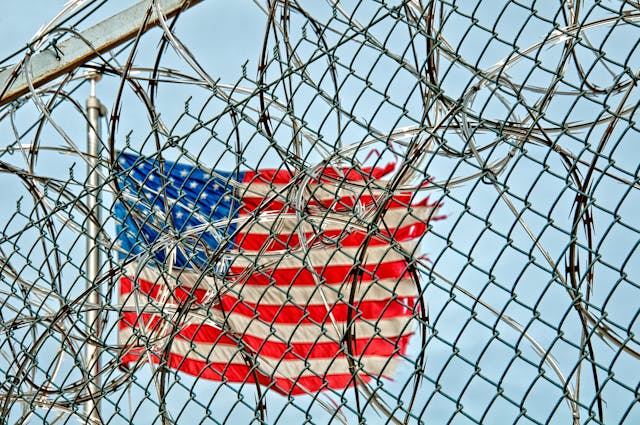U.S. President Donald Trump and Canadian Prime Minister Justin Trudeau have agreed to a 30-day pause on proposed tariffs following negotiations over border security and fentanyl trafficking.
Trump had announced a 25% tariff on Canadian imports and a 10% tariff on energy exports, prompting Canada to plan retaliatory measures on $30 billion worth of U.S. goods. The agreement delays these trade actions while Canada implements enhanced border enforcement measures.
Trudeau confirmed that Canada will deploy 10,000 additional frontline personnel, list cartels as terrorist organizations, appoint a Fentanyl Czar, and launch a Canada-U.S. Joint Strike Force targeting organized crime, fentanyl trafficking, and money laundering.
He also signed a new intelligence directive on organized crime and fentanyl, backed by $200 million. Trump stated that Canada’s commitment to securing the northern border and stopping the flow of fentanyl into the U.S. was key to the temporary tariff suspension.
Conservative Leader Pierre Poilievre called for Canada to deploy 2,000 additional border agents, arguing that while Trump’s rationale for tariffs may have been misguided, Canada must still take border security seriously.
“The United States needs to do more on its border, and so do we,” Poilievre said. “But frankly, it should not take a foreign leader to get our government to reverse its deadly policies that are killing our people.”
In January, Trump signed an executive order designating drug cartels as foreign terrorist organizations, opening the door for potential military action against cartel targets. The order stated that “The Cartels functionally control, through a campaign of assassination, terror, rape, and brute force, nearly all illegal traffic across the southern border of the United States.”
Poilievre welcomed the pause on tariffs but warned that Canada must remain vigilant. “We are relieved, but this is not a time to sit back. We must urgently work to strengthen Canada’s economy and do everything we can to ensure these tariffs are never brought in,” he said.
NDP Leader Jagmeet Singh echoed this sentiment, stating that the pause was “good news for Canada and Canadian workers” but that Trump’s threats would continue. “We need to make our economy less reliant on unreliable allies,” Singh said.
As negotiations unfolded, Ontario Premier Doug Ford, former Deputy Prime Minister Chrystia Freeland, and Liberal leadership contender Mark Carney engaged with U.S. media to emphasize the economic risks of the tariffs.
Ford addressed the situation, stating:
“We have some good news today. We have temporarily averted tariffs that would have severely damaged our economy, giving time for more negotiation and time for cooler heads to prevail. Thank you to the countless workers, union leaders, businesses, and everyday proud Canadians who rallied together to make this happen.
“With the U.S. pausing tariffs, Ontario will also pause its retaliatory measures. If President Trump proceeds with tariffs, we won’t hesitate to remove American products from LCBO shelves or ban American companies from provincial procurement.
“Make no mistake: Canada and Ontario continue to stare down the threat of tariffs. Whether it’s tomorrow, in a month, or a year from now when we’re renegotiating the United States-Mexico-Canada Agreement, President Trump will continue to use the threat of tariffs to get what he wants. We’re already feeling the impact. So long as our trading relationship with our largest trading partner remains uncertain, we will continue to see many potential projects frozen and projects that were already underway put at risk.
“Canada and the U.S. need to remain united and focused on the real trade war we’re fighting—with China. If we want to win, we need to fight together, not against each other.”
Ford warned that inflation and interest rates would rise, while Freeland stated that Canadians were rallying behind Trudeau. Carney emphasized that Canada’s response had shifted from confusion to resolve.
Trudeau’s government had initially signaled skepticism that further border security actions would change Trump’s stance.
Green Party Leader Elizabeth May said Trudeau told opposition leaders on Sunday that there was “no evidence that further actions on border security would make any difference.” Finance Minister Dominic LeBlanc also expressed doubt that negotiations could succeed before the tariffs took effect.
Trump has long criticized Canada for what he calls unfair trade practices, despite federal data showing that when oil exports are excluded, the U.S. maintains a trade surplus with Canada.
Trump stated that he is still open to imposing tariffs if Canada does not meet his expectations, writing that the 30-day pause will determine whether a final economic deal can be reached.


































